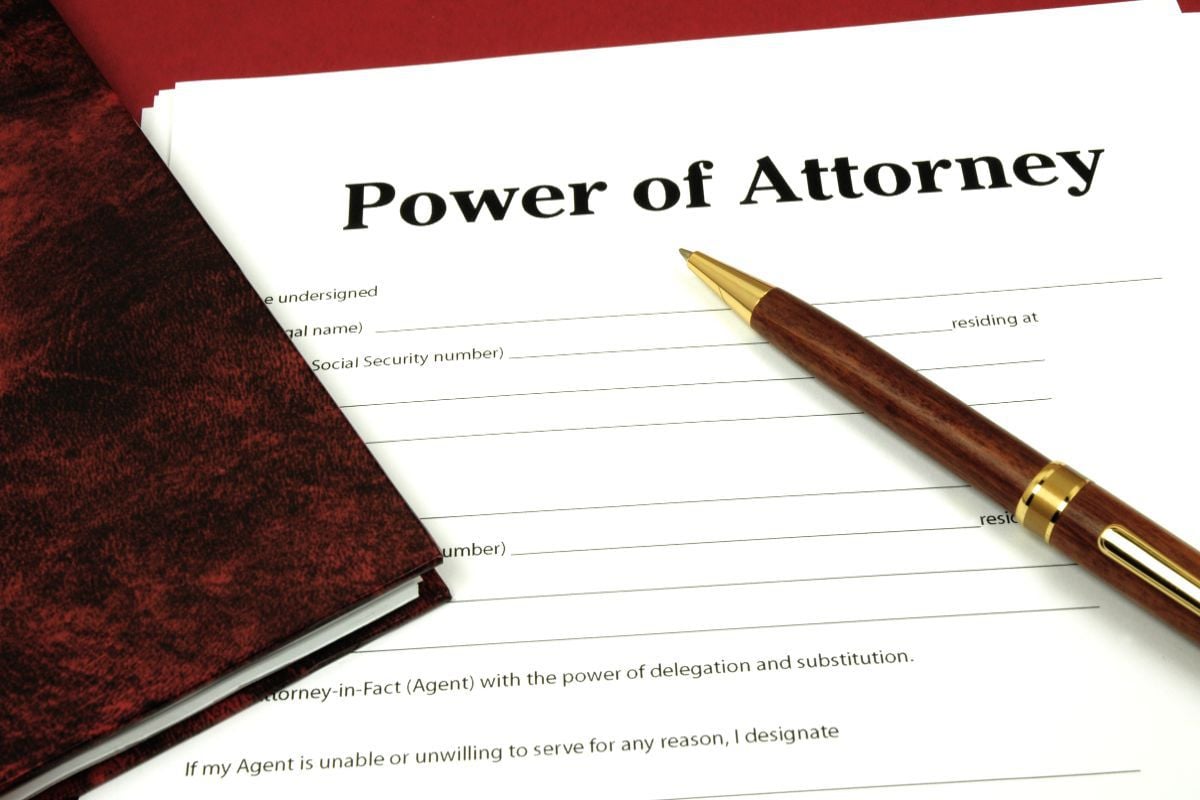You can designate how your assets will be transferred to your heirs and loved ones after you pass through a final will and testament, but what happens if you unexpectedly are unable to manage your own financial affairs due to incapacity or another reason? A will does not cover events that occur while you are alive.
Most people believe that a spouse or adult family member may simply step in and manage your finances and assets, but this is not the case. Someone would have to convince a court to decide that you are legally incompetent in order for them to take over your financial affairs.
You can execute a legal instrument called a power of attorney to prepare for a situation where you will need someone to manage your affairs for you. Though the word “attorney” appears in the title of the instrument, it refers to the power the person will have once the power of attorney is in place. The person you identify as your agent or attorney-in-fact will become your representative.
A power of attorney is an important aspect of complete estate planning. You should not only arrange for the care of your loved ones after you pass away, but you should also have the legal tools in place to handle financial concerns while you are still living but unable to do it yourself.
Powers of Attorney Generally
A power of attorney is a legal instrument that allows someone else to handle your financial affairs and assets, either entirely or partially, immediately upon execution of the document or only when a certain event or condition occurs. Issuing a power of attorney does not mean simply giving someone else complete control. You can handle your own finances as long as you are alive and physically capable.
The agent, or attorney-in-fact, named in your power of attorney might be a family member, friend, or acquaintance, but it must be someone you completely trust. You can also choose a successor (alternative) agent to take over if the primary agent is unable or unwilling to do so.
Classifications
Power of attorneys are classified into three types: durable, general, and limited. This is how they differ:
· Durable Power of Attorney
This instrument grants the nominated agent complete authority over your financial affairs. The term “durable” alludes to the fact that it continues to be effective even if you become incapacitated.
· General Power of Attorney
The agent is given wide powers over your financial matters, similar to a durable power of attorney, with the difference that such powers expire if you become incompetent.
· Limited Power of Attorney
This power of attorney might restrict the rights granted to the agent. For example, you may simply want the agent to manage your rental properties while you’re away on business or vacation, or you may simply want the agent to pay your bills while you’re away. A limited power of attorney might set time limits in addition to limiting the powers granted. For example, you might specify that the grant of powers will be available just from a start date until a finish date.
A power of attorney can be canceled at any moment as long as you have all of your faculties. If you are disabled, you cannot withdraw a power of attorney. Power of attorneys also automatically expire when you die. Your agent has no authority to alter your will or trust.
Medical Durable Power of Attorney
Healthcare wishes and options comprise another sort of power of attorney. The three forms of power of attorneys only cover the payment of medical costs and do not cover the hospital stay. If you want someone to speak on your behalf on medical treatment alternatives if you become incapacitated, you must acquire a healthcare power of attorney
If you are incapacitated in a hospital, the person nominated in this sort of power of attorney has the authority to convey your preferences. You can, for example, select “do not resuscitate” or “do not put me on life support,” or you can still choose to have such medical measures performed. Palliative care and even organ donation are an example of other important decisions covered by the medical power of attorney.
The Advance Health Care Directive and the Durable Power of Attorney for Health Care (DPAHC) are two separate documents: the first states your end-of-life medical wishes, the latter authorizes a trusted individual to speak on your behalf. Thus you should have both of these legal documents as part of your estate plan. Any estate plan should include a power of attorney, or possibly a combination of powers of attorney. Comprehensive estate planning considers not just your loved ones’ well-being, but also your own financial and medical requirements if you become handicapped or otherwise unable to carry out your own financial duties or advocate for yourself.
Estate Planning Law Firm in England
Contact the estate planning specialists at the Law Offices of Alhayat Solicitors. We will discuss your wants and assist you in creating the legal documents that will bring peace of mind to both you and your family. To schedule a free consultation, call +4420718382404 or easily fill out our online contact form.



